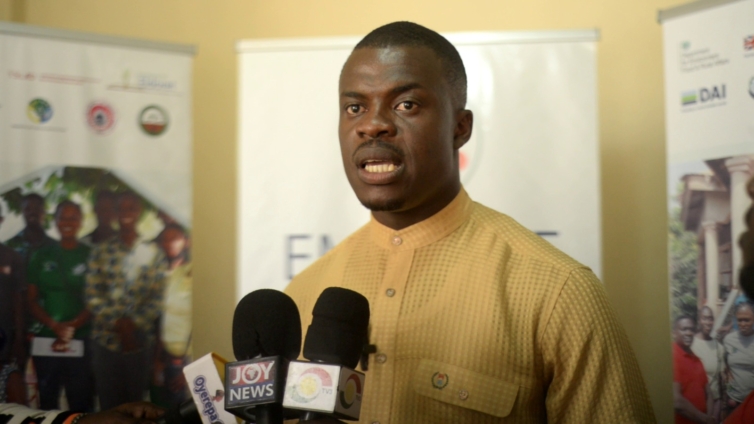The Crops Research Institute of the Council for Scientific and Industrial Research (CSIR-CRI) is starting an empowerment program to equip communities with relevant skills for biodiversity conservation and sustainable practices.
Under the project, over 1,200 households in Ghana and Kenya are expected to adopt agroforestry models and other farming practices to build a resilient community and diversify incomes.
With the impacts of climate change, loss of biodiversity and degrading of land and forest cover in Ghana, it has become crucial to restore the once beautiful and green scenery and life.
The Crops Research Institute under the CSIR is leading the charge to empower local communities to restore degraded ecosystems, preserve biodiversity, and promote sustainable practices.
The three-year project, ‘Engaging Local Communities in Minor Crops Utilization for Biodiversity Conservation and Livelihood Enrichment’ (EMBRACE), is a transformative initiative designed to uplift 25 communities in Ghana and Kenya, touching the lives of 1,250 households.
“We realized that if we don’t take the lead in conserving the biodiversity and judicious use of forest resources to ensure sustainable use of forest tree and minor crops resources, then it could impact our future food security. This is to ensure that as we continue to provide food for the country, we don’t deplete our resourcs,” Acting Director of the Crops Research Institute, Dr. Ernest Baafi, said.
The project is committed to supporting vulnerable groups, including women and youth, by providing them with opportunities for economic growth and diversified income sources.
Twenty-five agrosilvicultural farmsteads are expected to be established with integrated snail-mushroom-beekeeping farming for products like snails, slime, honey, propolis, and wax to reduce dependency on forest resources.
The project will work closely with local governments and stakeholders to integrate findings into broader policy initiatives, advocating for inclusive frameworks that support community rights.
“The whole idea of the project is to limit forest entry by protecting the forest resources that we have. We are creating farmsteads, community nurseries that would revitalize the endangered minor trees and crops. This would ensure we conserve our biodiversity,” Dr. Clement Oppong Peprah, the principal investigator for the project, said.
Through workshops, community meetings, and knowledge-sharing platforms, EMBRACE will foster a culture of learning and collaboration to create a scalable model for community-led conservation and sustainable development.
Latest Stories
-
Special Voting is not a guarantee for D-Day calm – NDC’s Fifi Kwetey warns of election desperation
5 mins -
Vietnamese tycoon in race to raise $9bn to avoid execution
25 mins -
White House defends pardon of Hunter Biden amid backlash
34 mins -
Three dead and dozens sick after eating sea turtle stew
41 mins -
Kwesi Yankah: In a comfortable leaaaaad!!!
55 mins -
NSS scandal: Authority secures court order to stop The Fourth Estate’s exposé
1 hour -
‘Ghanaians know what time it is’ – Fifi Kwetey confident of NDC victory
1 hour -
IMF completes 3rd Review of Ghana’s $3bn ECF Program, commends economic stabilisation progress
2 hours -
Belgium ordered to pay reparations for colonial kidnappings
3 hours -
Ontario launches major US ad campaign amid Trump’s tariff threat
3 hours -
UCC student wins Ghana Library Authority’s maiden youth advocacy challenge
3 hours -
CSIR-CRI to empower biodiversity conservation, sustainable practices in 1,250 households in Ghana, Kenya
3 hours -
Kwesi Yankah: In a comfortable leeaaaad!
4 hours -
Let OSP handle food distribution allegation against Lydia Alhassan – Evans Nimako
4 hours -
Special voting: Be of good cheer, a new era beckons – Mahama to voters affected by postponement
4 hours

